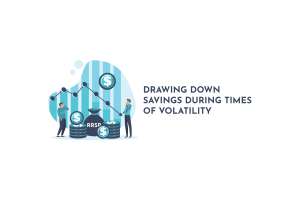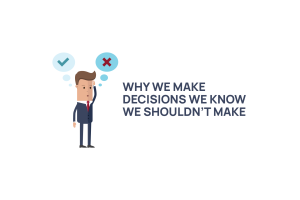Have you ever heard the expression ‘Everything old is new again’? What this means is that in many situations, history repeats itself. Things that you are experiencing today have been felt by people in the past and will likely be felt by people in the future as well. When it comes to financial planning, my experience shows that while everyone has their own unique situation, there are common aspects to many of the concerns that people have. With that in mind, I thought that it might be a good idea to take some time to address some of these common thoughts, fears, and problems. In order to avoid bombarding you with a huge amount of information, I will try to address the most common themes we encounter as advisors in a few different blogs. I am going to start with a couple of ideas surrounding retirement planning as part of your overall financial security plan. This is the idea that people are afraid that they won’t have enough money to support their dreams of what they want their life to look like in the future. Let’s look at why this fear is out there and what we can do as planners to help you build something that will help you feel like you have this under control.
In This Article:
- Congratulations
- Will I have enough money to support my retirement?
- What if I ‘outlive’ my money?
- Conclusion
Congratulations!
Here’s the best part. If you have had these thoughts, it is often because you have taken the step of building yourself a financial plan. Think of it this way: to figure out what it is that you are worried about in the future, you need to take the time to sit down and plan for your future. This means that you have a financial plan in place. You probably have even met with an advisor to help you come up with that plan (you could try to run all that time-value of money math on your own, but it may result in a migraine). This is why you deserve a hearty ‘congratulations’! Many people haven’t taken that first step, and because of this, they don’t know what track they are even on. Again, to lean on some more cliches, they don’t know what they don’t know, and that isn’t a great way to move forward into your financial future. So, if you’ve taken the step of creating yourself a financial plan, you deserve to feel really good about that. It may have unearthed some situations you feel uneasy about, but at least you know what they are and can come up with a plan to deal with them. Trust me, knowing about issues in advance is far better than the alternative of arriving at your planned destination and then figuring out you can’t do what you had hoped.

Common Fear #1 – Will I have enough money to support my retirement?
This is the common fear we will address first because it is the most frequent one. The goal that most people want to plan for first is their retirement. A lot of people want to start here because this is the most pleasant part of the plan; it has a pot of gold at the end of the rainbow. Nobody dies unexpectedly in a retirement plan; no one is critically ill or disabled. It is the best picture of the future that you want to work towards. What happens, though, when you’ve worked through the planning process and it shows that your goal isn’t in line with your current trajectory? This is what people worry about, and a good financial advisor will show you that there are options available to you if you have a shortfall between your current path and your goal. Some of these options should include:
- You can save more money. This is the first thing that people think of as a method to fill in any gaps. Obviously, if you don’t forecast having enough to support your retirement plan, saving more now will bridge that gap. Your advisor should be able to help you come up with an amount that increases your savings and would cover the shortfall. It may or may not fit into your budget, but if it does, it is often the first step people want to take.
- You could work longer (or work in retirement). Your retirement plan will include an age where it is your target to retire. This will also be the age at which you switch from the saving portion of your plan to the spending portion. Delaying your retirement a few years can often have a huge positive effect on filling in any shortfalls. If you don’t like the idea of delaying retirement but feel like there is a job that you would like to do that could provide a bit of income for you, this can also help in a big way because it means that you require less from your savings early on in retirement.
- You could try to earn more on your investments. If you are comfortable taking more risks, there is the potential that you could increase the rate of return on your investments and fill in any gaps with the extra growth. Since you would be exposing investments to more volatility, you need to carefully consider if this is the right solution for you.
- You could be happy with less. If you wanted to retire with $65,000 a year in income and your current path is only going to get you to $55,000 a year, you could reevaluate how you plan to spend your time and decide that you can adjust your desired lifestyle to match the current path you’re on.
Given that there are options to help you set and attain a retirement goal, you should have many talking points with your advisor as you come up with a strategy that fits best with your current lifestyle while still working towards funding your future.

Common Fear #2 – What if I ‘outlive’ my money?
This is something that fewer people needed to worry about in the past. There was a time when people stayed at the same job for many years, and then they retired with a nice defined benefit pension. This meant that they had income guaranteed not only for their life but that it would also carry on for their spouse if they pre-deceased them. What we see now is that very few employers in the private sector offer them anymore. The risk to the employer as the plan sponsor simply grew too large. The cash flow into the plan to ensure it was funded to meet the future liabilities of the plan became so much of a burden on the businesses offering them that many stopped offering this style of retirement plan. Employees in public sector jobs often still have access to this type of plan, but it is increasingly rare outside of that. Now, consider that we live in a time where technology has created many healthcare advances that keep people alive longer, but a side effect of this longer life expectancy is higher healthcare-related costs (nursing care, for example). With this as a backdrop, the idea that you have the potential to outlive your savings is real.
The solution to potentially outliving your money often relies on you having the funds to invest today or the assets in your portfolio to sell in the future.
- If you can increase the amount that you are investing, it will only add to the pool you have to draw from in the future. You can consider a few things to help along the way. Up until the past few months, people haven’t considered life annuities as a part of their retirement plan for many years. Interest rates had been so low for such an extended period that it was often difficult for annuities to keep up with the rate of inflation. This has changed with the rapid increase in interest rates that has happened in 2023. If you are really concerned about outliving your money, a life annuity is one way to make sure that doesn’t happen.
- What assets do you have available to you? Most often, this question is asked in search of one answer. Do you own a home? If you do and you are able to plan the timing of selling the home or have a plan to access the equity another way in the future (reverse mortgage as an example), you can tactically provide yourself with an infusion of cash into your retirement income pool at precisely the time you need it.
Conclusion
As I mentioned at the beginning of this article, these are common fears that people have once they’ve entered the financial planning process. The bright spot of this is that, as people who prepare plans regularly, your advisor will have coached people who have experienced similar fears to yours before. Don’t get me wrong; you aren’t looking for a cookie-cutter solution to your situation. You want someone who will piece together a plan that is appropriate for you using any and all of the options we discussed earlier. Remember this: even though you may feel uneasy about things after you start planning, keep working towards a solution that works for you. This helps settle your worries and gives you confidence heading into the future. If you would like help with your retirement plan, contact one of our advisors today.





